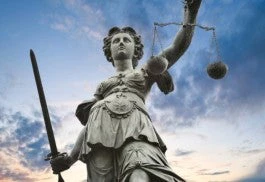
(1) Democracy promotion, identified by such donor agencies as USAID, includes criminal procedural reform as a cardinal element of its support in the Latin America region. See the Justice Services Improvement Project (Peru) and Justice Services Strengthening (Colombia).
(2) Economic development and good governance represents another ROL objective to assist governments with Foreign Direct Investment–the main justification for many programs, particularly in transition economies or those moving into 2nd generation reforms. Unlike the Law and Development movement of the 1960 and 70s, this objective identifies the market, as opposed to the State, as a catalyst for change. The rationale is essentially the following: as more private actors begin to influence the direction of an economy, their competition would not be limited to the marketplace, but also felt in the courts, and the courts are not up to the task (for numerous reasons–antiquated procedures, judicial corruption, lack of modern case management, etc.). By the mid-1990s, the Bank and other agencies began connecting “poor governance” or corruption as a cause undermining development and the implementation of solid economic policy reforms. See the Second Sustainable and Participatory Energy Management (Senegal) and the Legal and Judicial Reform Project, (Mongolia).
(3) Human rights and social development has also been linked to the promotion of ROL through gender equality, legal literacy, public legal education, and truth commissions. While these actors tend to be mostly representative of civil society interests, their voice and global connections via international treaties and multilateral institutions such as the UN have made them important stakeholders capable of defining the development agenda. See "Bringing Gender into Formal Institutions and Policies" (pg. 345, World Development Report 2012 on “Gender Equality and Development”) and the Judicial Capacity Building Project, (Bangladesh).
(4) Law enforcement, often connected to the larger objective of the fight against terrorism, has included capacity building programs conducted by police and military in post-conflict states or countries struggling to address soaring crime and violence rates. See "Rebuilding the Rule of Law in Liberia" (pg. 25, “Africa- Regional Justice Note: A Review and Lessons Learned”) and the Judicial Reform Project (Afghanistan).
Over the past two decades, some would suggest that these objectives have “morphed” into one other due to a focus on the broad, all-encompassing concept of ‘good governance’ for development and taking into account analytical contributions from World Development Reports in 1997, 2000, 2006, and 2011. The Bank has provided some support, while others have obtained bilateral or regional multilateral donor financing, but ALL would identify promoting the ROL as their objective. So here's a question: Does a specific "definition" even matter anymore if the overall objective is enhancing ROL for development? How do you think the Bank should engage in strengthening ROL in countries in the early stages of democracy?


Join the Conversation